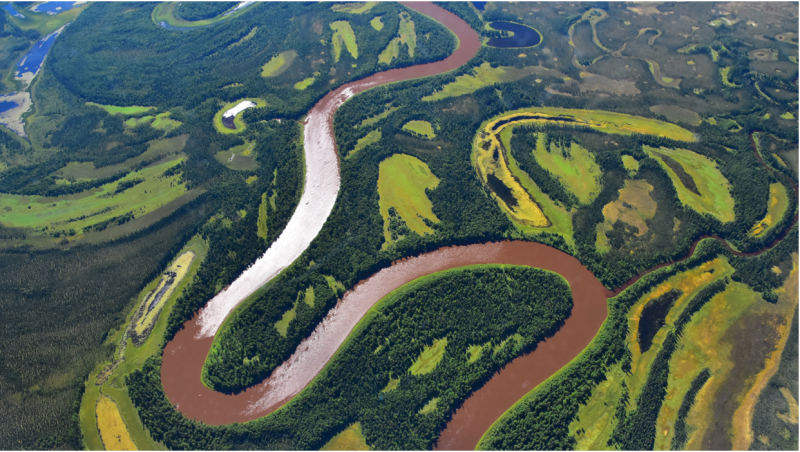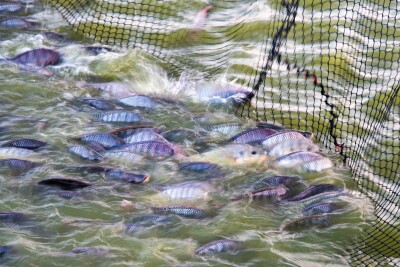Three tribes in the Kuskokwim River region of Southwest Alaska filed a lawsuit in U.S. District Court in Anchorage, challenging federal agency permits for the Donlin Gold Mine, billed as potentially the world’s largest open pit gold mine.
Project backers NovaGold and Barrick Gold Corp. began working in 2012 for permits to open a mine 10 miles north of the Kuskokwim River. In echoes of the Pebble Mine project vetoed in January by the U.S. Environmental Protection Agency, Donlin opponents say the planned mine and its rock waste would pollute salmon spawning streams that flow into the Kuskokwim River.
Tribes suing to halt the proposed project are Orutsararmiut Native Council, Tuluksak Native Council and the Organized Village of Kwethluk, represented in court by the nonprofit environmental law group Earthjustice.
“Citing three fundamental flaws in the environmental and subsistence analyses and authorizations for the project,” according to a statement from Earthjustice, “the lawsuit challenges key authorizations of the massive open pit mine including a federal permit allowing thousands of acres of wetlands to be filled and a federal authorization granting access across federal lands for a 316-mile pipeline from Cook Inlet to the mine site.”
The tribes argue the project “is too risky and does not protect human health and subsistence uses.”
Mine backers maintained the 2018 federal permits will be defensible in court.
“Donlin Gold’s stakeholders fully believe that this lawsuit is meritless and are confident the actual record will once again fully support the agencies’ decisions,” according to a statement from the companies. “In the meantime, the Donlin Gold team and the owners continue to advance remaining state permitting, as well as drilling and technical work.”
In August 2018, the Army Corps of Engineers issued a joint Record of Decision with the Bureau of Land Management authorizing the key Clean Water Act permit required for the Donlin Gold project. The approval was granted despite the fact that the environmental impact statement revealed significant environmental impacts, including the destruction of salmon spawning habitats and releases of mercury into the air and water in excess of Alaska’s standards.
The tribes’ new lawsuit asks that “federal agencies be required to study the impacts to downstream waters and villages from a potentially catastrophic tailings dam failure, which the agencies refused to do in the environmental impact statement,” according to Earthjustice.
Federal agencies must act to prevent predicted impacts to Kuskokwim River rainbow smelt, according to the tribes.
“Because of flawed studies that failed to thoroughly consider the environmental and subsistence impacts of the mine, the U.S. Army Corps of Engineers has issued an illegal permit and BLM and the U.S. Department of the Interior have authorized an illegal right-of-way,” said Maile Tavepholjalern, a senior attorney with Earthjustice. “The Corps also failed to prevent predicted impacts to Kuskokwim River rainbow smelt, an important subsistence and prey fish.
“This lawsuit seeks to overturn those authorizations, which would halt the mine. Before it moves forward again, federal agencies would need to conduct a more honest assessment of the mine’s impacts and identify and require measures to protect smelt.”
“We’re concerned, for example, that the pit lake could overflow, or the tailings dam might fail,” said Walter Jim, the Orutsararmiut Native Council chairman. “This would devastate the fisheries on the Kuskokwim River and its tributaries, and negatively impact the health of the people, wildlife, and fish of our region. These risks to our health, our waters, and our lands are unacceptable.”







